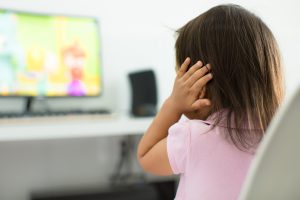School-Based Intervention Programs for Adolescents with ASD and Anxiety in Singapore
April 5, 2021

World Autism Awareness Day is observed on 2 April, and aims to recognise the rights and needs of people with autism. The study ‘Feasibility, Acceptability and Preliminary Treatment Outcomes in a School-Based CBT Intervention Program for Adolescents with ASD and Anxiety in Singapore’ (Journal of Autism and Developmental Disorders, 2017) responds to the concern that children and adolescents with autism spectrum disorder (ASD) are at high risk for anxiety difficulties and disorders. The study, conducted by Adjunct A/P Mariam Aljunied (NUS Department of Psychology) and her co-researchers, Irene E. Drmic and Judy Reaven, attempt to study the adaptation of clinic-based cognitive behavioral therapy (CBT) for Singaporean youths with ASD in a school-based setting.
The Facing Your Fears (FYF) CBT program was selected for the study’s adaptation and implementation, with 44 youths aged 13 to 15 from 22 mainstream schools as participants. The study’s main purpose was to train school staff to deliver the FYF school-based (FYF-SB) adaptation of the program, to assess its feasibility and acceptability, and to examine preliminary youth anxiety treatment outcomes following participation in the FYF-SB. Critically, the study’s importance lies in its attempt to improve access to care for youth with ASD and anxiety, for interventions to date have primarily been delivered in clinic settings.
The FYF-SB program’s adaptation involved shared decision-making between investigators from the United States, Canada, and Singapore, ensuring the program was culturally appropriate for the Singaporean context, and well-fitted to the school setting. The FYF-SB was delivered in the schools by facilitators in small groups of 2 to 3 students, and involved components like psychoeducation, development of coping skills, emotion regulation strategies problem-solving, cognitive self-control, and graded exposure.
Ultimately, school staff and parents involved in the study indicated that the FYF-SB program was valuable, and that they were able to easily and independently apply the strategies learned to better support youth. Further, treatment outcome results demonstrated a statistically significant decrease in both youth and parent reported anxiety symptoms post program. Altogether, while the study acknowledges several limitations (such as its relatively small sample size and the lack of a randomly assigned control group), its results indicate a potential for implementing FYF-SB in school settings for youth with ASD and anxiety.
Read the article here.
